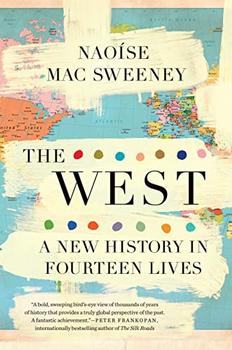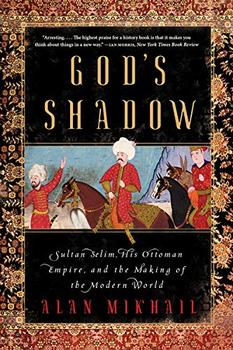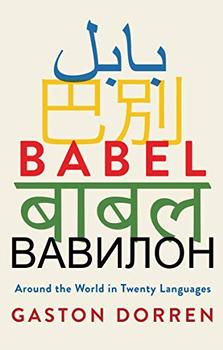Summary | Excerpt | Reviews | Beyond the book | Read-Alikes | Genres & Themes | Author Bio

A New History in Fourteen Lives
by Naoíse Mac SweeneyPrize-winning historian Naoíse Mac Sweeney delivers a captivating exploration of how "Western Civilization" - the concept of a single cultural inheritance extending from ancient Greece to modern times - is a powerful figment of our collective imagination. An urgently needed emergent voice in big history, she offers a bold new account of Western history, real and imagined, through the lives of fourteen remarkable individuals.
In this groundbreaking, story-driven retelling of Western history, Naoíse Mac Sweeney debunks the myths and origin stories that underpin the history we thought we knew. Told through fourteen figures who each played a role in the creation of the Western idea — from Herodotus, a mixed-race migrant, to Phylis Wheatley, an enslaved African American who became a literary sensation; and from Gladstone, with a private passion for epic poetry, to the medieval Arab scholar Al-Kindi — the subjects are a mind-expanding blend of unsung heroes and familiar faces viewed afresh. These characters span the millennia and the continents, representing different religions, varying levels of wealth and education, diverse traditions and nationalities. Each life tells us something unexpected about the age in which it was lived and offers us a piece of the puzzle of how the modern idea of the West developed — and why we've misunderstood it for too long.
The concept of "the West" is present in every daily interaction you have, from entertainment and politics to world markets and world history. This engagingly intimate history will reshape the way you see the world around you. At this moment of civilizational redefinition, if we are to chart a future for the West, we must properly understand its past.
The greatest facet of this book is how it encourages readers to consider a more nuanced, interwoven history that, by re-evaluating the past with the full breadth of our knowledge, pays tribute to the very ideals of Western Civilization while broadening what that definition really means...continued
Full Review
(924 words)
This review is available to non-members for a limited time. For full access,
become a member today.
(Reviewed by Rose Rankin).
 As Naoíse Mac Sweeney explains in her book The West: A New History in Fourteen Lives, the fusing of Greco-Roman roots into a common "Western" narrative took off during the Renaissance, and some of the most illustrative examples of this process came from an unlikely source—a female poet and courtesan named Tullia D'Aragona.
As Naoíse Mac Sweeney explains in her book The West: A New History in Fourteen Lives, the fusing of Greco-Roman roots into a common "Western" narrative took off during the Renaissance, and some of the most illustrative examples of this process came from an unlikely source—a female poet and courtesan named Tullia D'Aragona.
Like many non-noble women, the details of her early life are lost to time. Born sometime between 1501 and 1505, her mother was likely a courtesan, and her father may have been a relative of Ferdinand I of Naples, the Spanish king in whose honor she was named "D'Aragona."
D'Aragona grew up in Rome but moved frequently throughout her life to courts and city-states around northern Italy. By the mid-1520s...
This "beyond the book" feature is available to non-members for a limited time. Join today for full access.

If you liked The West, try these:

by Alan Mikhail
Published 2021
An explosive global history that redefines the historical origins of the modern world through the life of Sultan Selim I and his Ottoman Empire.

by Gaston Dorren
Published 2019
Witty, fascinating and utterly compelling, Babel will change the way you look at and listen to the world and how it speaks.
Discovery consists of seeing what everybody has seen and thinking what nobody has thought.
Click Here to find out who said this, as well as discovering other famous literary quotes!